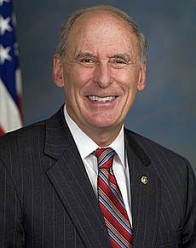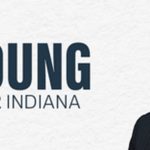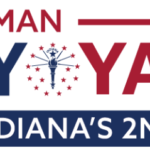 12/05/1 Last week Senator Dan Coats (R-Ind.) cosponsored the North American Energy Security Act, legislation that would require the Obama Administration to permit construction of the $7 billion, privately-funded Keystone XL (KXL) pipeline. The Keystone XL pipeline is the largest infrastructure project ready in the United States.
12/05/1 Last week Senator Dan Coats (R-Ind.) cosponsored the North American Energy Security Act, legislation that would require the Obama Administration to permit construction of the $7 billion, privately-funded Keystone XL (KXL) pipeline. The Keystone XL pipeline is the largest infrastructure project ready in the United States.
“This legislation means more jobs and less reliance on Middle East oil,” Coats said. “It is a commonsense solution that will secure our energy supply, put Americans back to work and strengthen our economy.”
The 1,700 mile pipeline would transport 700,000 barrels of oil per day from Canada to U.S. refineries. The project is estimated to generate approximately 20,000 new jobs directly and support hundreds of thousands of jobs in the coming years. The proposed pipeline represents the largest shovel-ready infrastructure project in the country and it would not require any new government spending. Despite more than three years of analysis by the State Department and the opportunity to create American jobs, President Obama announced he is putting off a decision on KXL until after the 2012 election.
The North American Energy Security Act was introduced today by Senators Richard Lugar (R-Ind.), John Hoeven (R-N.D.) and David Vitter (R-La.). The bill would:
- Require the President, through the Secretary of State, to issue a permit within 60 days to allow the Keystone XL project to move ahead, unless he finds that it’s not in the national interest;
- Require the permit for Keystone XL to contain strong and specific environmental safeguards and protect states’ rights;
- Require the federal permit to recognize an alternative route approved by Nebraska, protecting their ability to shift the route of the pipeline to avoid the Sand Hills area, while not holding up construction elsewhere;
Additional co-sponsors include Mitch McConnell (R-Ky.), Lisa Murkowski (R-Alaska), Mike Johanns (R-Neb.), Johnny Isakson (R-Ga.), John Cornyn (R-Texas), Roger Wicker (R-Miss.), Pat Roberts (R-Kan.), John Barrasso (R-Wyo.), Marco Rubio (R-Fla.), Jim Inhofe (R-Okla.), Jerry Moran (R-Kan.), John Thune (R-S.D.), and Ron Johnson (R-Wis.).














